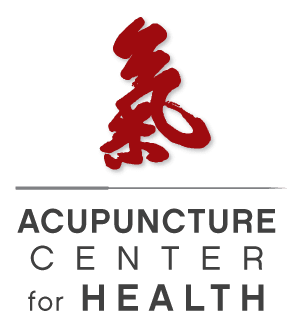CALL NOW (805) 237-1011
Frequently Asked Questions
What does acupuncture treat?
The National Institute of Health and the World Health Organization recognize that acupuncture can successfully treat the following conditions:
- Upper Respiratory Tract
- Trigeminal Neuralgias
- Acute sinusitis
- Facial Palsy (early stage, i.e., w/in 3-6 months)
- Acute rhinitis
- Pareses Following a Stroke
- Common Cold and Flu
- Peripheral Neuropathies
- Acute tonsillitis
- Meniere’s Disease
- Respiratory System
- Bladder Dysfunction
- Acute bronchitis
- Nocturnal Enuresis (bedwetting)
- Bronchial asthma
- Intercostal Neuralgia
- Eye Disorders
- Cervicobrachial Syndrome
- Acute conjunctivitis
- Frozen Shoulder
- Central Retinitis Myopia (in children)
- Tennis Elbow
- Cataracts (without complications)
- Sciatica
- Mouth Disorders
- Low Back Pain
- Toothache
- Osteoarthritis
- Post Extraction Pain
- Carpal Tunnel Syndrome
- Gingivitis
- Back and Knee Pain
- Acute and Chronic Pharyngitis
- Fibromyalgia
- Gastrointestinal Disorders
- Chronic Fatigue
- Spasms of esophagus
- Sports Injuries and Pains
- Hiccough
- Reproductive & Gynecological Conditions
- Gastroptosis
- Premenstrual Syndrome
- Acute and Chronic Gastritis
- Dysmenorrhea (menstrual cramps)
- Gastric Hyperacidity
- Spotting and Excessive Bleeding
- Chronic Duodenal Ulcer (pain relief)
- Amenorrhea (Loss of Menstrual Period)
- Acute Duodenal Ulcer (without complications)
- Impotence
- Acute and Chronic Colitis
- Infertility
- Acute Bacillary Dysentery
- Incontinence
- Constipation
- Prostatis
- Diarrhea
- Mental Emotional Problems
- Paralytic Ileus
- Stress
- Neurologic and
- Anxiety
- Musculoskeletal Disorders
- Depression
- Headache and Migraine
- Insomnia
Does Acupuncture hurt?
Acupuncture needles are thin, disposable, single-use, sterile fillform needles that are meticulously inserted at strategic anatomical locations. Most acupuncture points are located near the surface of the body or in the muscle layer. Some patients feel an initial, quick sensitivity or ache upon needle insertion. However, many patients are pleasantly surprised by the relaxing experience of an acupuncture treatment.
Are the needles sterilized / do you reuse them?
A licensed acupuncturist is required to be certified in Clean Needle Technique and use single use, sterilized needles exclusively. The highest quality acupuncture needles are used in my clinic. They are safely disposed of in a special receptacle immediately after your treatment.
Is Chinese medicine safe?
When practiced by a trained and licensed professional, acupuncture is extremely safe.
In fact, Chinese Medicine has been used throughout history to successfully treat a wide variety of health problems and diseases. Chinese medical practices can be a drug-free alternative to help heal many problematic conditions, or serve as a complement to western medical treatment. A thorough patient intake will be performed during the first visit in order to address any concerns before your treatment.
To receive licensing, acupuncturists must complete a three-to four-year masters degree, a 3,000-hour academic program at an accredited, board-approved school. Additionally, over 1,000 hours of required clinical study as a student intern are required to complete an accredited program. Additionally, Salena studied in several complimentary health settings that integrated western and eastern medical practices.
How should I prepare for my visit?
Patients should print out and complete the new patient forms before their first visit. If you are unable to do so, please arrive twenty minutes early so that you can complete the forms. You should bring copies of any previous medical records pertinent to your condition and bring a list of medications or supplements with dosage. Patients should be hydrated and have something to eat approximately one to two hours before their appointment.
Where can I find more information on Chinese medicine?
Please visit Pacific College of Oriental Medicine’s Articles page. Here you will find links to resources providing more detailed information on the history and efficacy of Chinese medicine.
HAVE A QUESTION? SEND US AN EMAIL.
IF YOU HAVE ANY PROBLEMS WITH THE CONTACT FORM YOU CAN EMAIL US BY CLICKING HERE
